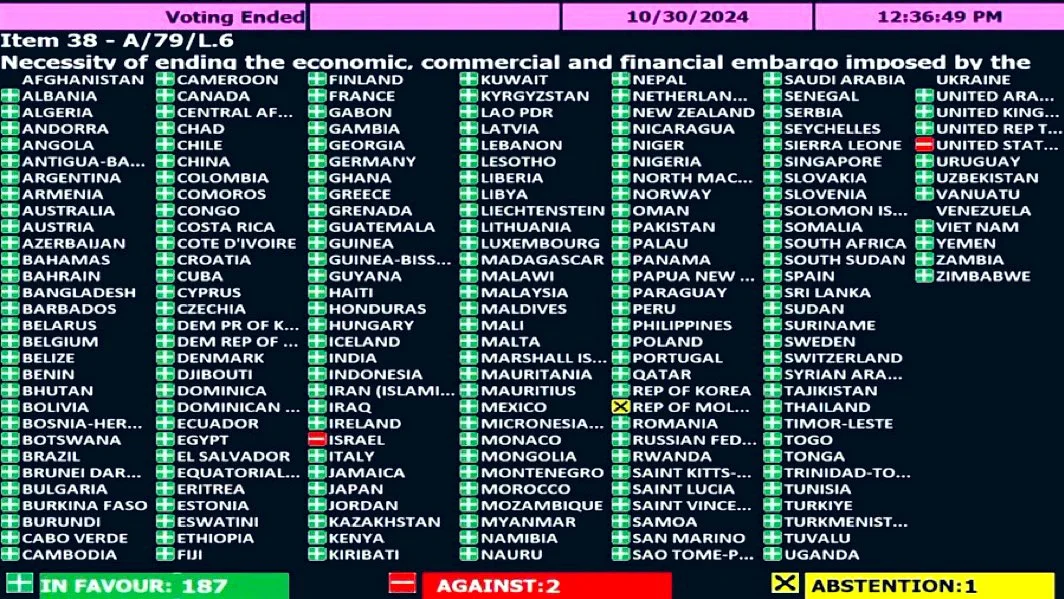- cross-posted to:
- [email protected]
- cross-posted to:
- [email protected]
On October 30, the UN General Assembly once again convened to debate and vote on a non-binding resolution to end the US blockade against Cuba. This year, 187 countries voted in favor of the resolution. The United States and Israel were the only countries to vote against it, and only one country, Moldova, abstained.
Cuba has presented the resolution “Necessity of ending the economic, commercial and financial embargo imposed by the United States of America against Cuba” every year since 1992 (except 2020), to the UNGA. Every year it passes in an almost unanimous vote, showcasing the international consensus against the US policy.
This year’s resolution comes as Cuba experiences a historic energy crisis and is recovering from the devastating Tropical Storm Oscar. Despite these challenges, Biden refuses to lift the blockade, take Cuba off the State Sponsors of Terrorism list, or lift Trump’s additional 243 sanctions against Cuba. US-based Cuba solidarity activists have organized a fundraiser to deliver essential humanitarian aid to Cuba as it faces these crises.
“US imperialism continues violence & genocide, but the peoples of the world have had enough and call for an end to the blockade,” writes the International Peoples’ Assembly.
Many were pleasantly surprised to see that the far-right government of Argentina supported Cuba’s resolution, abandoning its proclaimed allies Israel and the US. However, hours after the vote, Argentine President Javier Milei announced that he was firing Foreign Minister Diana Mondino because of the vote. Her replacement is Gerardo Werthein, Argentina’s current ambassador to the US who is a businessman and an ideologically committed Zionist.



The Cuban Embargo Explained
Badempanada’s video on the embargo
Tl;dw is that the embargo makes it so no company/ships trading with Cuba are allowed to trade with the US. And given the US’s control over the global financial systems and geographic proximity to Cuba, that essentially means almost any company sacrificing trade with the US to trade with Cuba would be committing financial suicide.
The US ruling class’s motives are that a thriving socialist country so close to the US might force them to make concessions to the working class (free healthcare, transport, etc.) to match Cuba, similar to what the Scandinavian countries had to do because of their proximity to the USSR.
Cuba’s biggest current shortages right now are energy and building materials like cement. Both of which are directly caused by the embargo, and worsened by the recent storm.